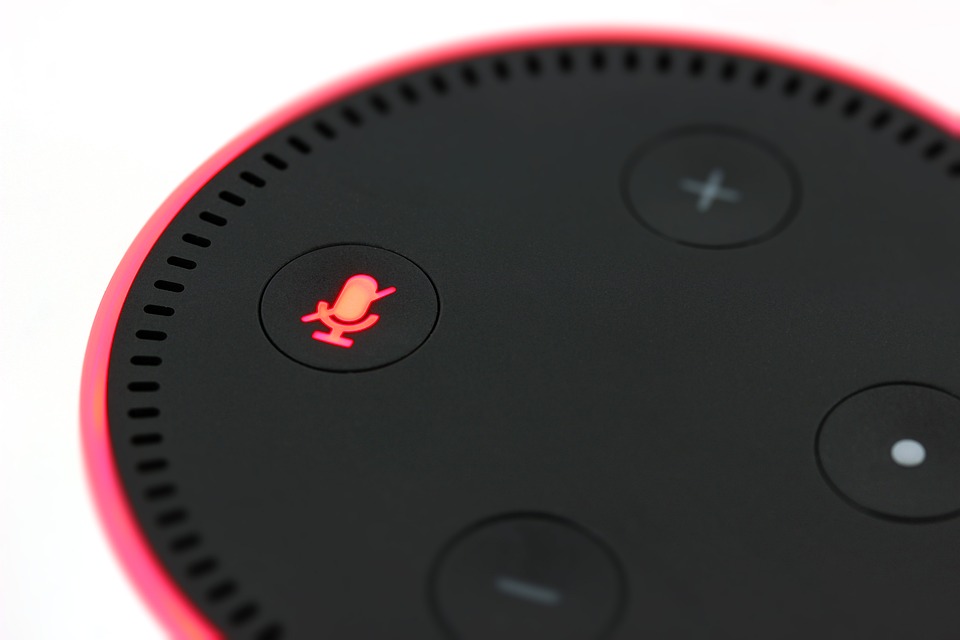By Jean-Jacques DeLisle, contributing writer

Are you comfortable having an Amazon Echo in your home? Image source: Pixabay.
People used to dream about having a robotic assistant to obey their every command, and now, thanks to the Amazon Echo, the future has arrived. But with privacy concerns becoming an ever-growing issue in our tech-heavy world, is having a digital assistant secure? Below are four ways that the Amazon Echo and its obedient voice, Alexa, pose threats to your privacy.
Continual audio surveillance
Amazon’s Echo-and-Alexa-enabled devices constantly monitor sounds in the area for the pre-programmed wake word unless its mute setting is toggled. Amazon claims that all sounds recorded prior to the wake word are processed locally and then deleted a few seconds later. Once the wake word has been registered, the command is then sent to the Amazon cloud servers, from where the response to your command is taken. Exactly how much information recorded or sent prior to or after your request is unknown, along with the identity of who may be listening to it. The potential for some outside party to hack into your device and then pick and choose what Alexa listens for is a worrisome possibility.
Hackable
The Amazon Echo is not immune to the advances of hackers who could use it and its automated features to spy on you or your family. According to Wired, an Echo has already been turned into a wiretap in just a few minutes by an experienced hacker. This means that used devices, or ones bought from less-than-reputable dealers, could potentially have been previously hacked and could have the ability to spy on you and reveal your sensitive information to crooks and cyber-thieves.
It records what you say to it
Your conversations with Alexa are recorded and saved. Being digitally saved, your searches and overheard conversations could be referenced later by Amazon or anyone else that can get a hold of them. These conversations are stored on Amazon’s servers, and you can actually go back yourself and listen to or delete any that you choose. If you can access this server, then obviously a net-savvy hacker or improper authority could, too.
Advertising purposes
The most annoying of its security flaws is the Echo’s ability to be used in advertising. When you talk to Alexa or use your Echo to order things online, the items are recorded and stored in Amazon’s databanks. That information is then analyzed and used to suggest future purchases with customized advertisements. This development leads to the dreaded scenario in which you mentioned cat food once and now have advertisements for tasty canned cat food for the next two weeks even though you don’t actually own a cat. To make it even worse, information about your life and habits that are being stored by Amazon are being sold to advertising companies so that they can, in turn, use it to try to make money off of you. Remember, before you set up your Amazon device, you agree to its terms of use, but the thought of your personal information being sold to the highest bidder, with no monetary gain being offered to you for your services, is truly disturbing.
What do you think? Do you own an Amazon Echo or a similar device? Leave a comment below.
Advertisement
Learn more about Electronic Products Magazine





